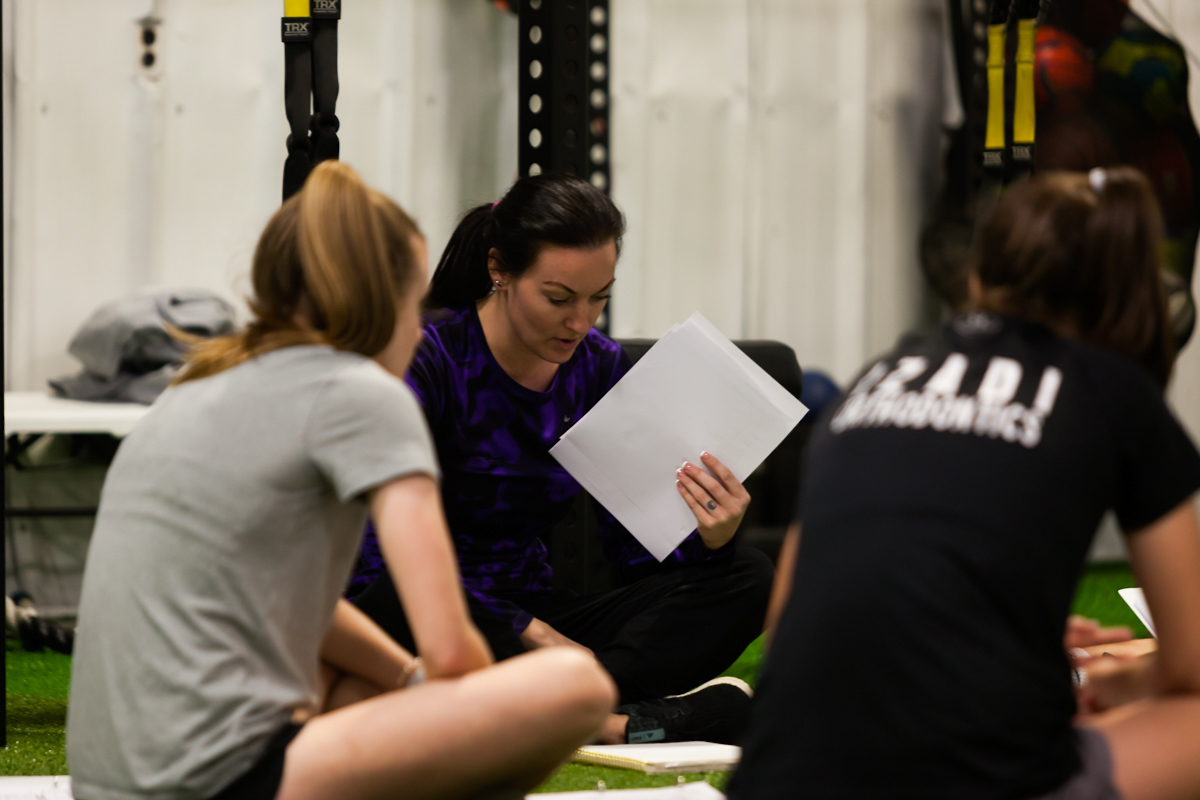
28 Jun Coaching Female Athletes: Are You A Good Coach?
I don’t know if I’m a good coach.
And I don’t know if you’re a good coach, either.
In fact, I ponder what makes a good coach every day.
When I’m hanging out on Twitter, I observe what everyone is saying, discussing and showcasing, and I continue to dig for what makes everyone ‘good.’
There are a lot of coaches fighting over the X’s and O’s, the tactics, the formations, the exercise physiology, the biomechanics, the physics.
I see coaches arguing about velocity based training.
I see heated discussions on max aerobic speed and anaerobic conditioning.
I see a burgeoning gap between early specialization vs. early sampling theories.
I see arguments over shin angles being one degree off during change of direction.
I see hour-long threads over the position of the knees during squats.
Of course, I believe there needs to be plenty of open conversation between professionals on how to train, the why, and the science. Otherwise, we are doing our athletes a disservice when we stay stuck in our own biases and how we’ve “always done it.”
If we weren’t challenging our colleagues and exchanging ideas, we’d still be doing the stupid stuff we did back in the day.
We’d still only be doing back squats.
We’d still be doing sit-up tests.
We’d still be doing push-up tests.
We’d still be doing warm up laps around the pitch followed by static stretching.
We’d still be doing ice baths as our only method of recovery.
We’d still be programming full field sprints the day after a match, instead of going on a recovery run.
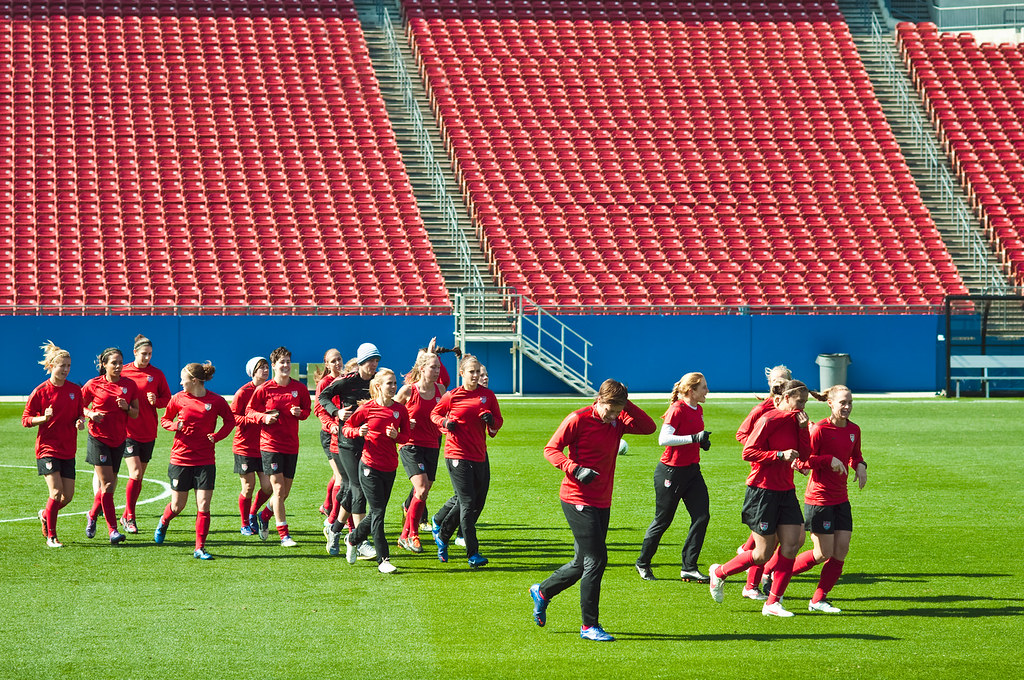
While it is critical to exchange ideas with colleagues and be on the cutting edge of performance enhancement and injury reduction, are these the only conversations we should be having? Are these the only things we measure as far as our success?
Yes, there needs to be data-driven results, but also, qualitative results – the ones we can’t quite grasp, yet are rich and fulfilling.
Yes, players need to improve speed times to the millisecond over a long period of time.
Yes, players need to build power and be able to move load faster.
Yes, players need to become robust so they handle the physical demands of the match.
And more often than not, if you’re a quality performance coach, your players are making these improvements over time.
So this begs the question: are we really good coaches when our athletes get results, or are we just doing our jobs?
Are we really good coaches when our athletes get results, or are we just doing our jobs? Share on X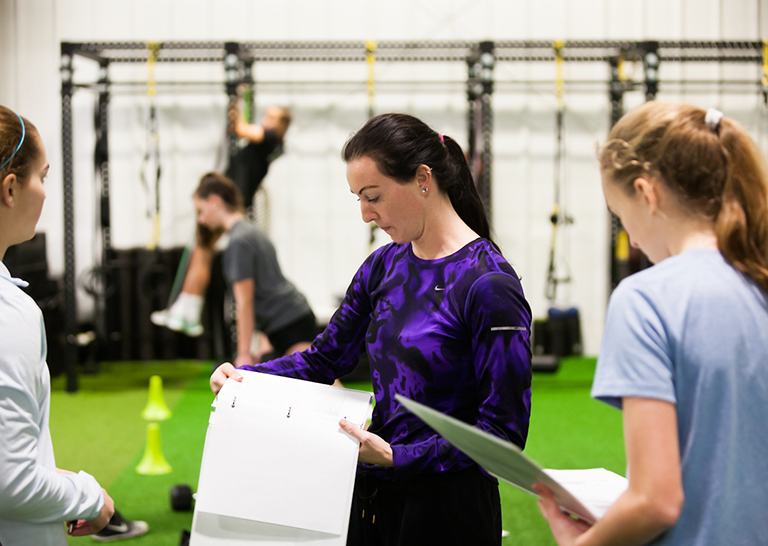
This reminds me of when I received a resume from a potential strength and conditioning intern. Under the Experience section, he bullet pointed things like “measured athlete vertical and broad jumps” or “retested sprint times after every training block” or “saw 5-10% improvements in speed, strength and change of direction ability.”
I couldn’t help but ask out loud, “so you basically did your job?”
*crickets chirping*
Alas, I digress. Just like rapper Logic says, “you give me a sick beat and I’mma fill the lyrics in and do my job.”
And for us coaches, just give us committed athletes and we’re going to get them better and do our jobs.
It’s the minimum requirement.
Let’s take this further now. If you’re doing the bare minimum and only going off of these measures, does that make you a good coach?
Is there one recipe that shines light on how much of a magician you are in the weight room and on the pitch?
Or are there others layers to athlete development?
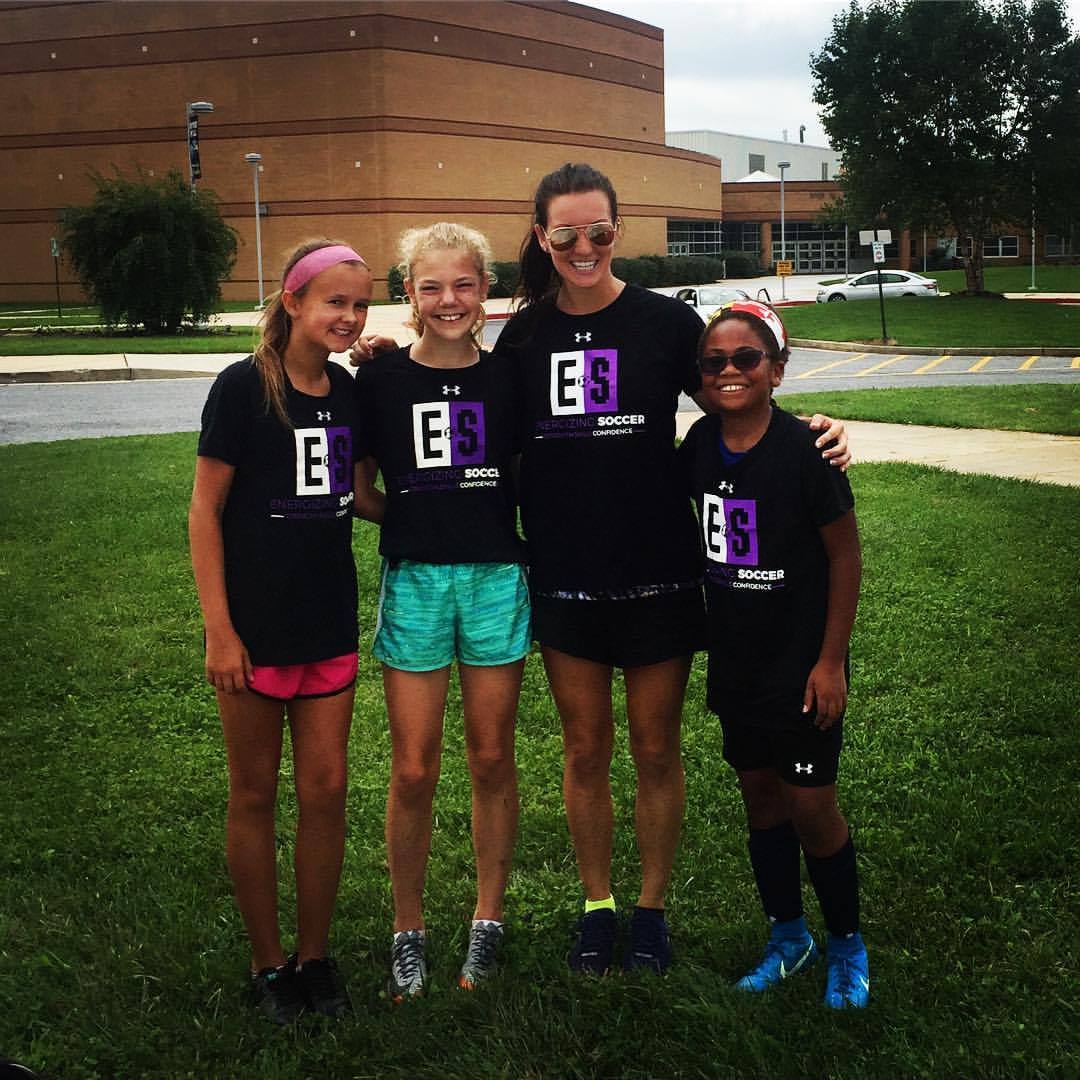
Are you a good coach if you work for the pros?
Are you a bad coach if you coach recreational?
Am I a good coach because I’ve had zero ACL injuries from my athletes over the years? Was that all me and my programming? Or was it luck and other factors?
Am I bad coach because I work at the grassroots level and have never worked for a pro club?
Am I a good coach because I’ve sent several girls to Division 1 programs?
Am I a bad coach because I’ve never yelled at my athletes?
I don’t know.
Are you a good coach because you have won championships?
Are you a good coach because you prove you’re right and others are wrong on Twitter?
Are you a bad coach because your athletes quit sports?
I don’t know.
Looking to my athletes’ shiny successes, such as getting over 7′ broad jumps, under 1.6 second 10-yard accelerations, under 6-minute timed miles, going Division 1, playing abroad, winning state championships and getting all-state accolades, I can’t help but ask, ‘how much of this was me?’ And ‘how much of this was them?’ Or ‘how much of this was nature and them growing physiologically?’
It’s an ego-stripping, deep question that forces me to think critically about all of the pieces that go into athlete success.
The best example of this is a girl I started training since age 10, who dreamed of playing for UNC, and was offered a walk-on spot her junior year of high school, but only if she got into the school. The roster for her class was already recruited, so her playing for UNC depended on her academic performance.

For her entire junior year, she put her head down and buried herself in her studies to get the GPA and SAT scores to get in. She ended up with an impressive 4.6 weighted GPA, and a 1460 SAT.
As hard as she worked and as amazing as her academic resume was, the result was devastating: wait listed.
I remember her calling me to tell me the news, and I met up with her to give solace her and give her a hug. She said to me in tears, “thank you so much for everything you’ve done. I can’t thank you enough. Even though I didn’t get in, you helped me be who I am today.”
This is an important story because it bubbles several questions to the surface as far as my coaching and her pursuing her dreams.
Was her not getting into UNC a failure?
Was her falling back on a Division 3 soccer program a failure?
Was her working hard and getting the grades she needed my coaching, as she alluded to in her gratitude, or was it her taking action in her own life and studying every day and saying no to partying with friends?
Was it a team effort?
Ah, maybe that’s it.
Team effort.
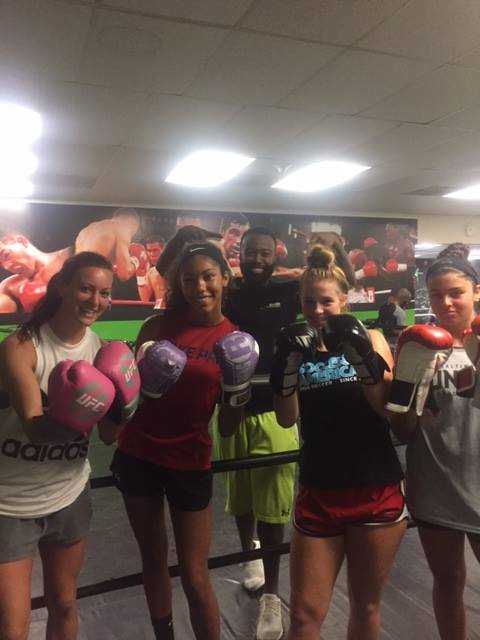
Looking beyond my players’ successes on the pitch and in the weight room, such as growing up to be strong, kind women who set boundaries, follow their dreams, and plunge into their passions, can these also be measurables for success?
That gives me an idea: we need to do a longitudinal study on where our youth female athletes end up after sports when they become women in the real world.
That gives me an idea: we need to do a longitudinal study on where our youth female athletes end up after sports when they become women in the real world. Share on XToo, I continue to ask the question, was their character development a result of me leading by example and exuding a healthy, strong, hard working woman, or was it them finding the strength within themselves? Was it both?
I don’t know.
And maybe I’ll never know.
I don’t know if I’m a good coach.
And I don’t know if you are either.
Truthfully, I’m okay with asking myself this question for the rest of my career, and I choose to dedicate my life to searching for answers, even though there’s no guarantee of getting them.
Being a good coach, then, might be the lifelong pursuit of asking questions.
Being a good coach might be finding joy in solving a puzzle.
Or, being a good coach might just be finding peace in saying, “I don’t know.”


Shane MCLEAN
Posted at 01:14h, 30 JuneAwesome post coach. I found myself nodding my head a lot reading this.
I never thought I was any good until a fellow coach (years and years ago now) said i was a good trainer. I never gave it much thought.until then.i still don’t know if I’m any good because I see coaches better than me all the time but i’m sure do enjoy doing it.
erica
Posted at 10:26h, 30 JuneThank you, Shane.